Reverse culture shock from long-term travel is the real deal… one I’m grappling with right now.
“You’ve got to get out of here. This is not normal.”
June’s tone was serious. English traveler, friend, and long time blog follower, June was riding with me in a car past burning mounds of trash along a Bangladeshi highway. She paused conversation to snap photos of the spectacle; I apathetically scrolled through my Instagram messages. Documentation complete, June returned to the issue at hand.
“I’ve traveled the world like you for years. Trust me. You’ve got to get out of these countries every once in a while, or else you’ll forget where you come from. You cannot let this become normal for you.” Scavenging people poking through the trash whizzed by the window.
Typical cocky twenty-something, I mentally scoffed. I am a cultural chameleon! An exception! Adapting to my environment is my forte and I will be fine!
… but since that moment, I couldn’t stop thinking about what she said.
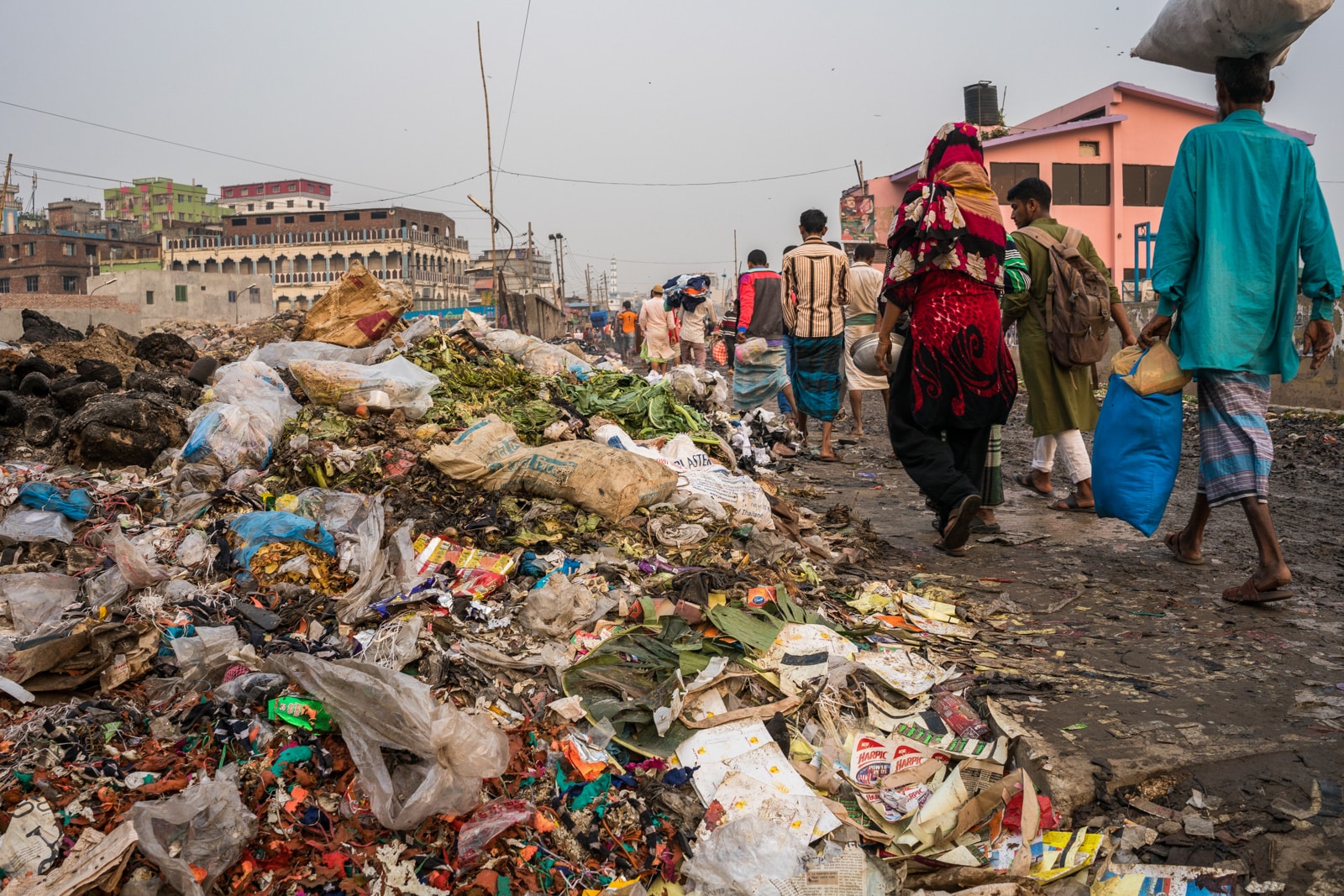
Dhaka, Bangladesh: trash there, don’t care.
F*cked up normalcy
The thing is, I think June was right. What has become “normal” to me?
Trash mounds crawling with pigs or stray dogs or people or licking flames are no surprise. Walkways coated in waste do not phase me; I simply join the crowds trudging beaten paths through stinking urban swamps.
Normal is public spaces overflowing with men… and only men. Missing women are in “their place” at home, hidden away behind car windows and rickshaw panels, or swathed in fabric to “protect” them from the crowds of men. Men are my only conversation partners; men are often the only ones I can meet. Some days it upsets me, most days I accept my fate.
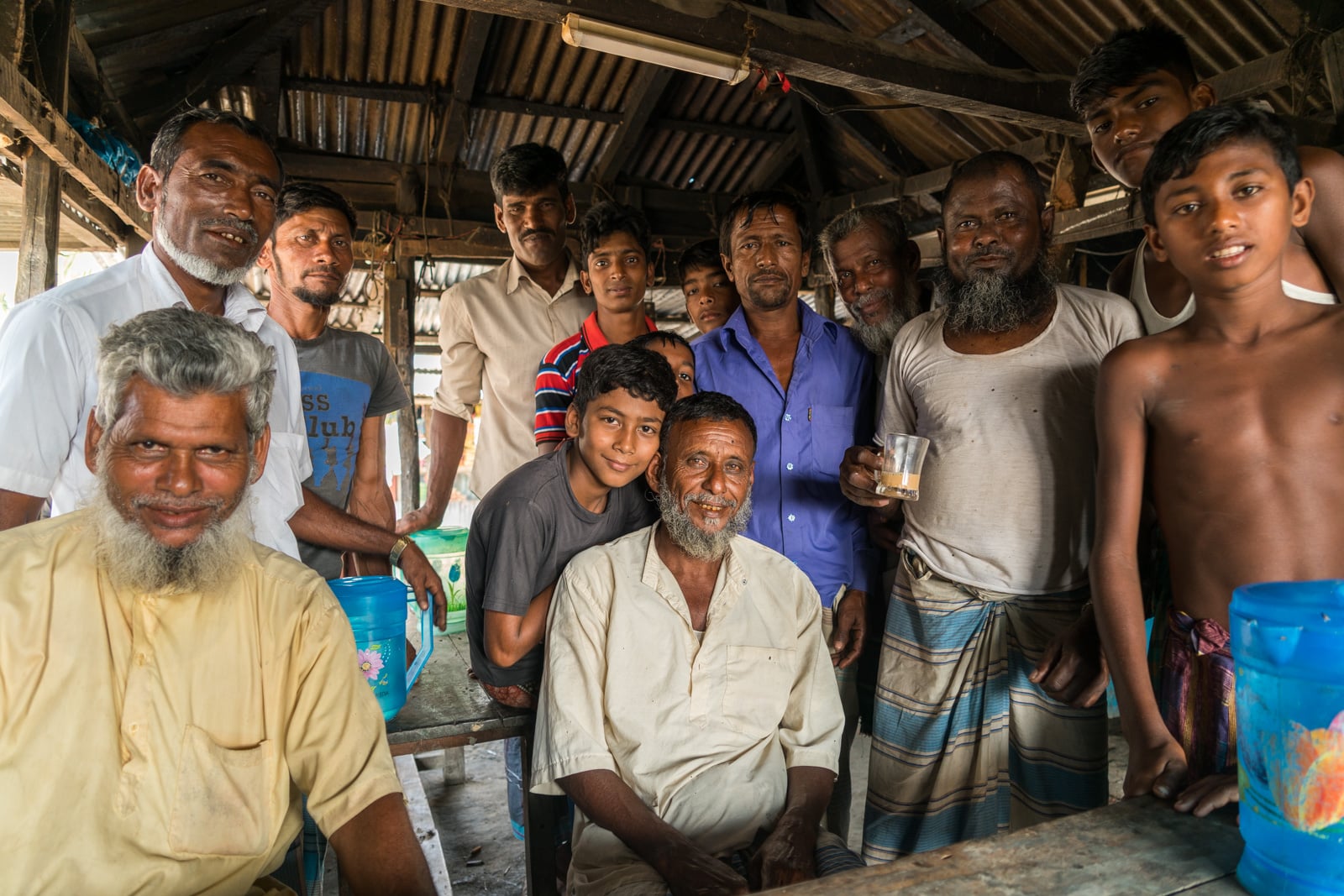
Nothing like a big group of men on Nijhum Dwip, Bangladesh watching me take every bite of my breakfast, eh eh?
My religious views (… or lack thereof) are like a dirty secret, a burden only to be shared with a very select few on the ground. The idea of telling someone my true beliefs makes me uncomfortable; they might interpret my beliefs as a betrayal of theirs, and act upon it.
Rearranging on buses and taxis and trains to ensure women can sit next to me is instinctive. I feel conscious walking around with only male friends for company. Without realizing it, I’ve adapted to cultural norms put in place to keep boys and girls far from each other in the name of modesty and decency… even though I believe in the exact opposite.
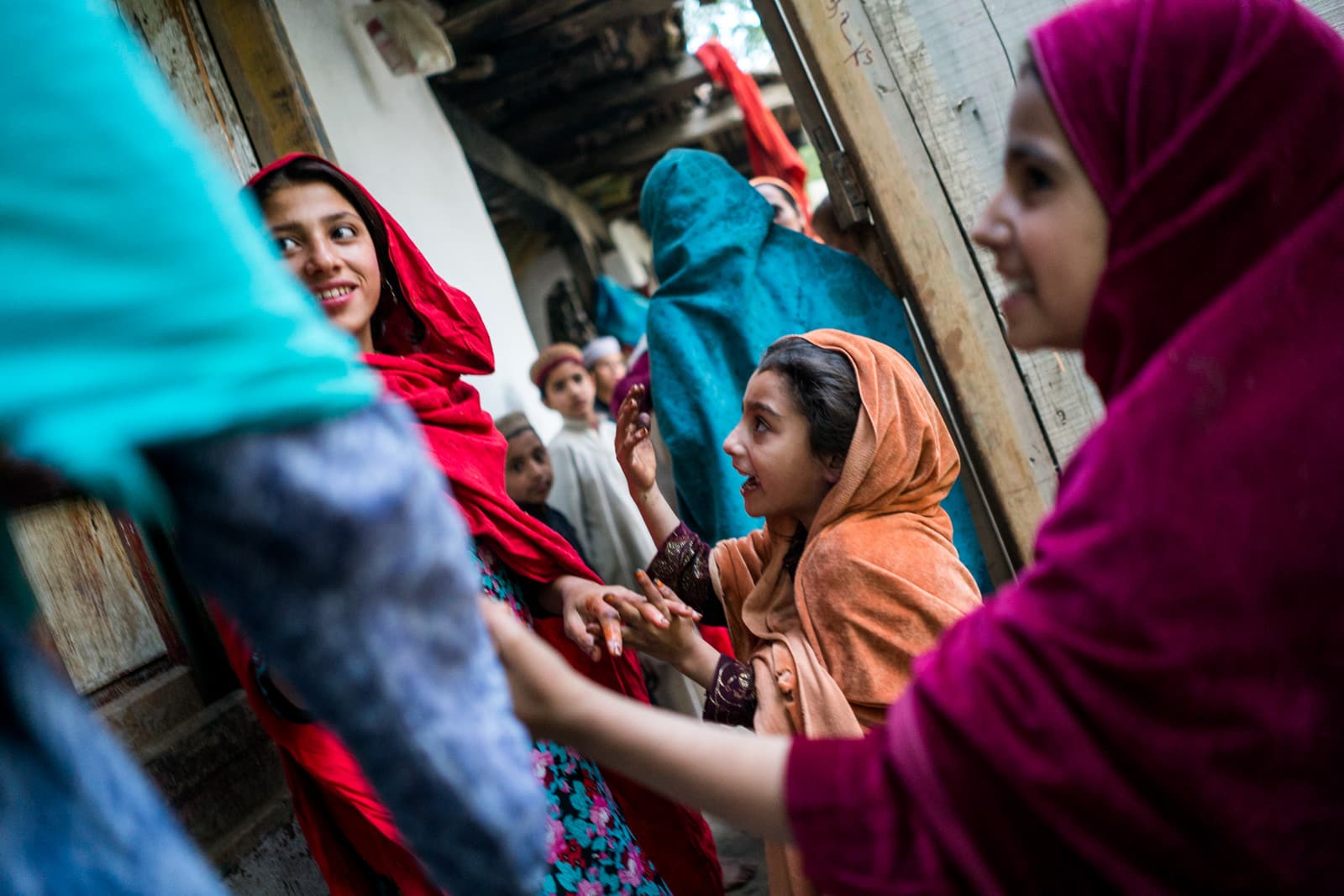
Women and girls hidden away behind walls in Thall, Pakistan
So what isn’t normal then?
These days, something as simple as a woman smoking a cigarette or walking alone is exciting to me. Young boys and girls hanging out and flirting, even in the dark of night in the most secluded places, seems like the sexual revolution of the 60s. Places qualify as delightfully clean if the pieces of trash on the ground can be counted on my fingers. Working women in any public-facing field are a noteworthy occurrence.
Realizing my standards had shifted was uncomfortable enough. Then I was thrown into the deep end.
Lost in Latin America
The shock hit me when I flew from Islamabad, Pakistan, to Manaus, Brazil.
Before getting on the plane, I was in a conservative country of strict social constructs. Where men rule the streets and women stay at home. Where I was once offered a sheet to shield my body from prying eyes before heading out for the evening. Where walking around on my own as a woman is often a spectacle, rather than a norm.
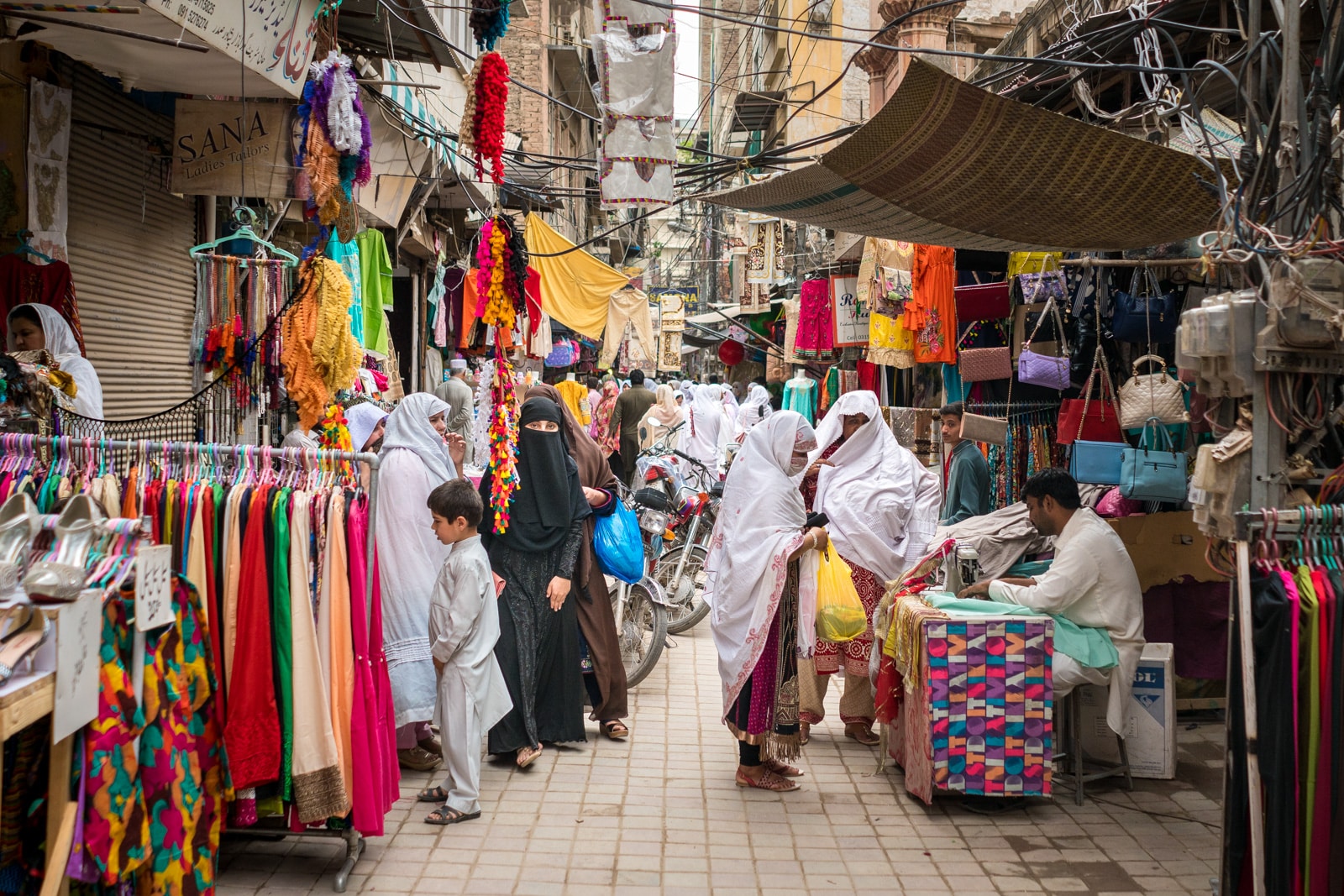
Women shopping in a women’s area of the bazar in Peshawar, Pakistan
Several flights later, I was in a state capital where gangs of both boys and girls hang out in parks smoking cigarettes together at night, and couples hold hands while walking the streets in broad daylight. Where God is present, but isn’t the sole motivator of law and actions.
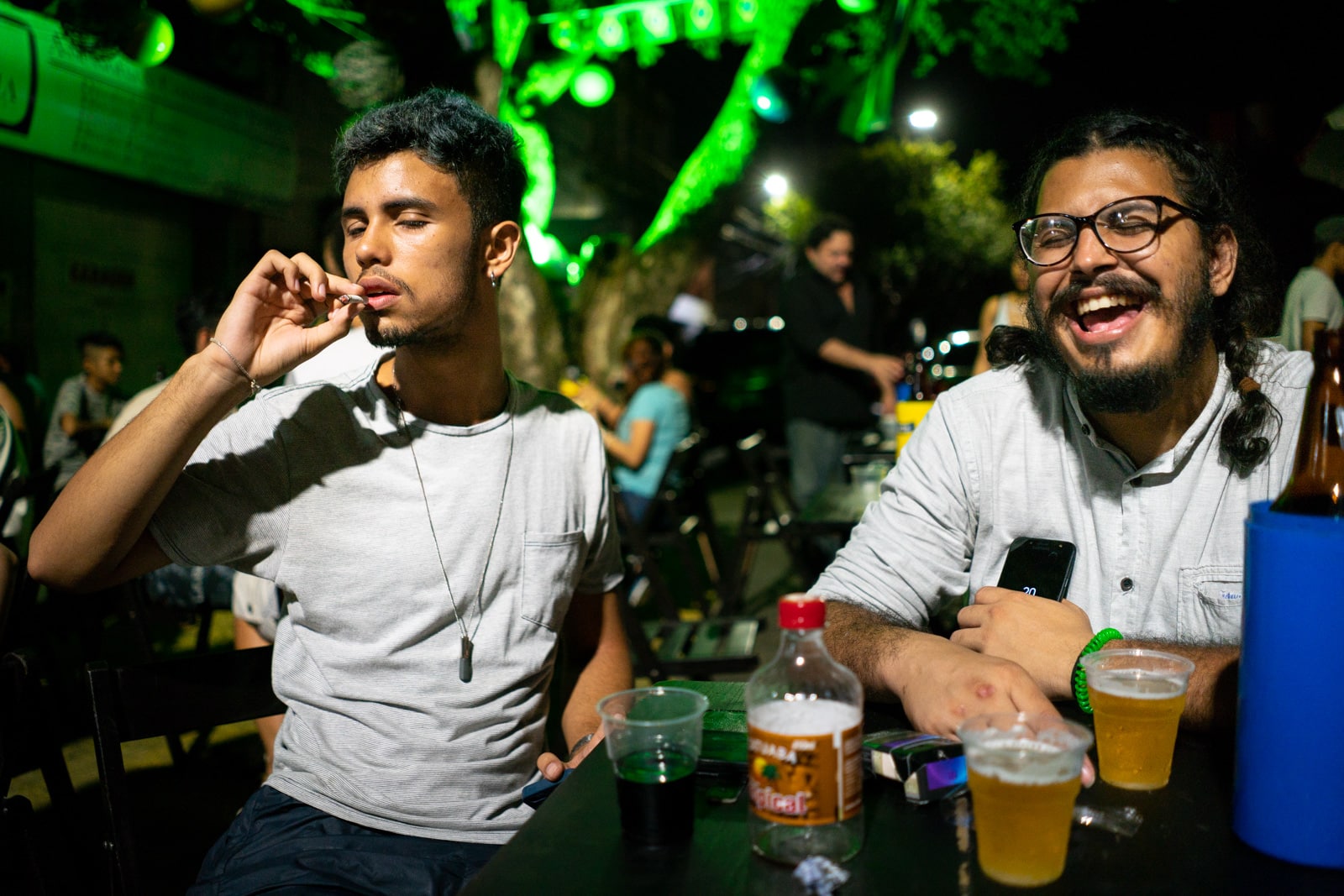
Sitting outside on the street in shorts with beer singing to music with two boys I’m not related to? Yes! Wait… what?
A friend told me about his homosexuality loud and proud in public without issue. Not a single long stare punctured my time wandering through Manaus’ streets on my own.
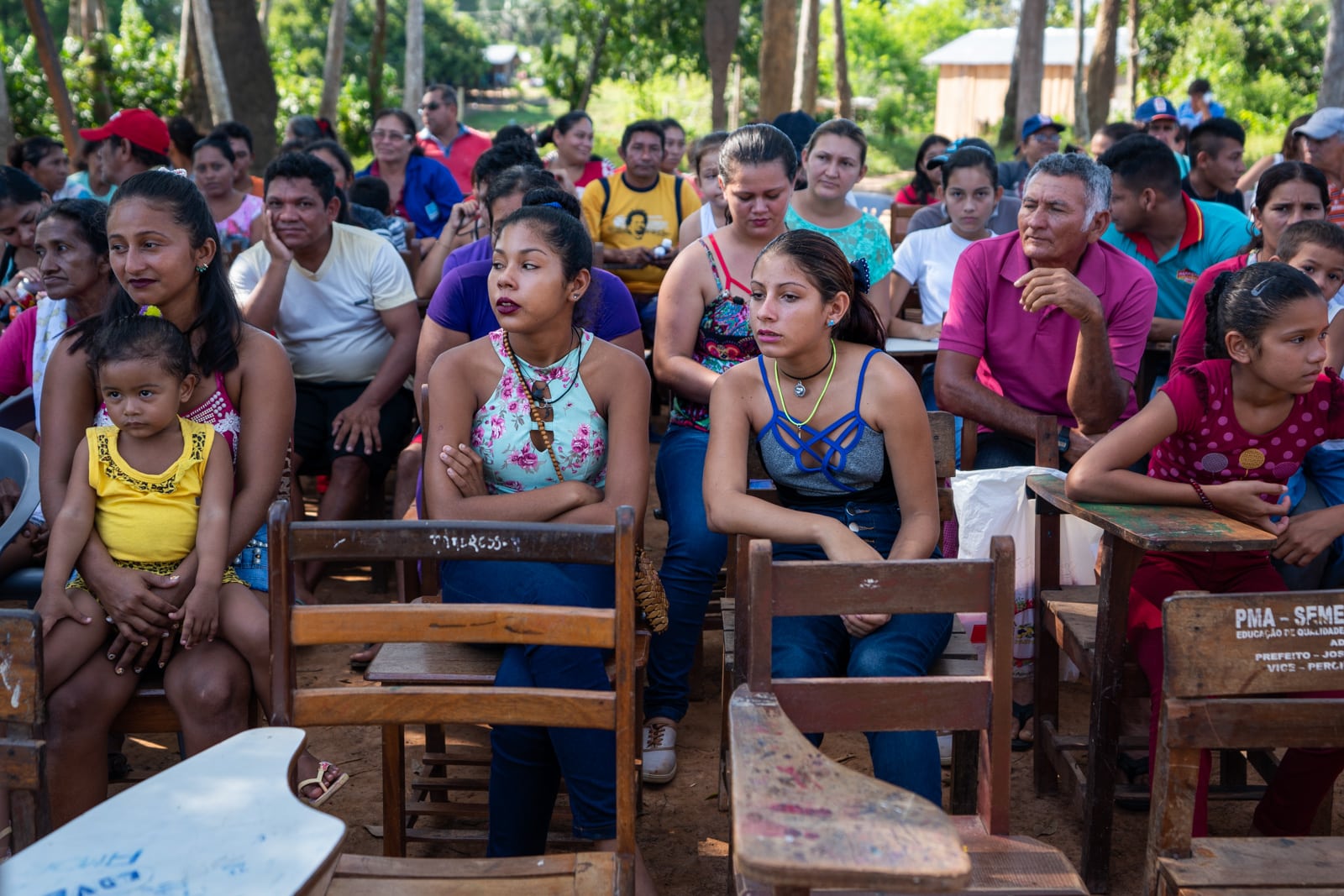
Even in the Brazilian villages the shift was extreme. These two teenage girls showed up to the eye care clinic I was working at with OneSight. No male escort, no modest dress, no one harassing them for being out on their own in tiny clothes. Amazing! … or is it?
Two weeks after that, I landed in Cartagena, Colombia.
In Cartagena’s old city, historic buildings are preserved with care, and city streets lined with dustbins are cleaned each day. Street dogs were few and not rotting to death; horses with gleaming coats drew polished carriages. Girls in clothes tight enough to burst drove by on their own motorbikes.
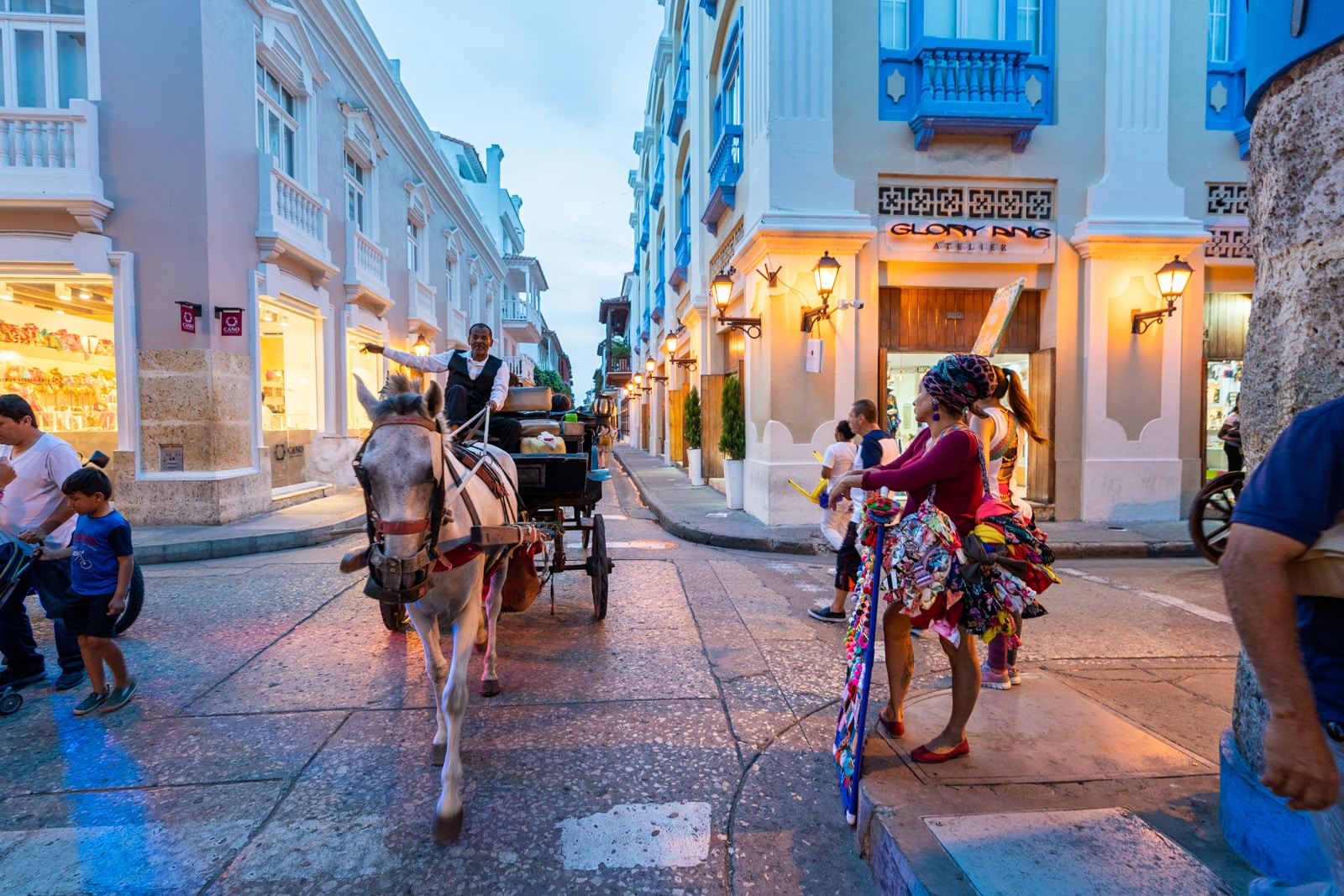
Legs on the streets of Cartagena’s touristic old city
One warm Cartagena evening, I shared kisses and cheap beer in a public square with a Colombian boy I’d met. No bystander so much as batted an eyelid.
I eventually pulled away in shock. “One month ago I would never have gotten away with this,” I breathed, half exhilarated, half confused. “I can’t believe this is happening.”
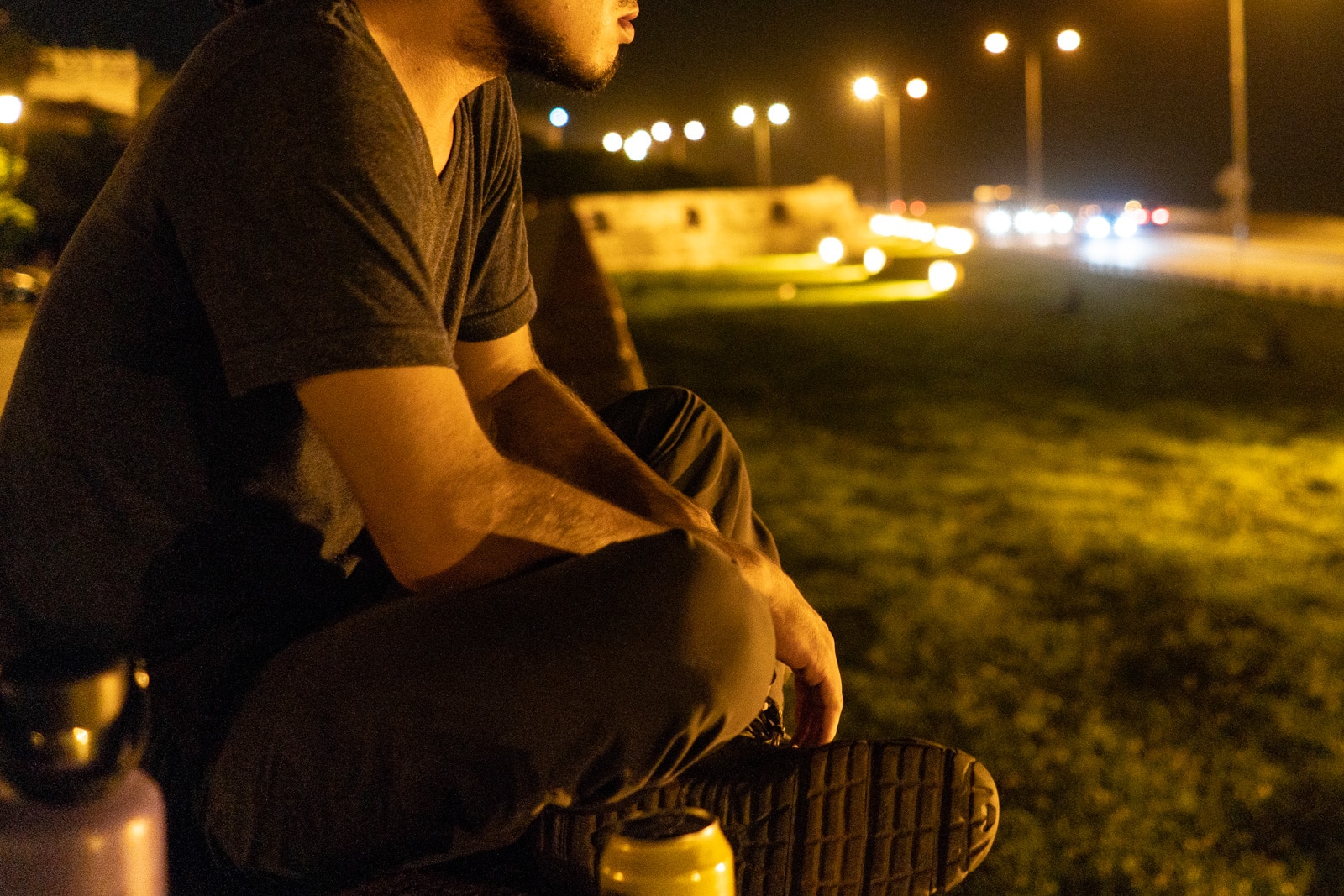
He laughed and we carried on. Alcohol and warm weather dulled my turbulent thoughts, but I still peered out of the corner of my eye to make sure no scowling aunties or perverted men were watching. They weren’t.
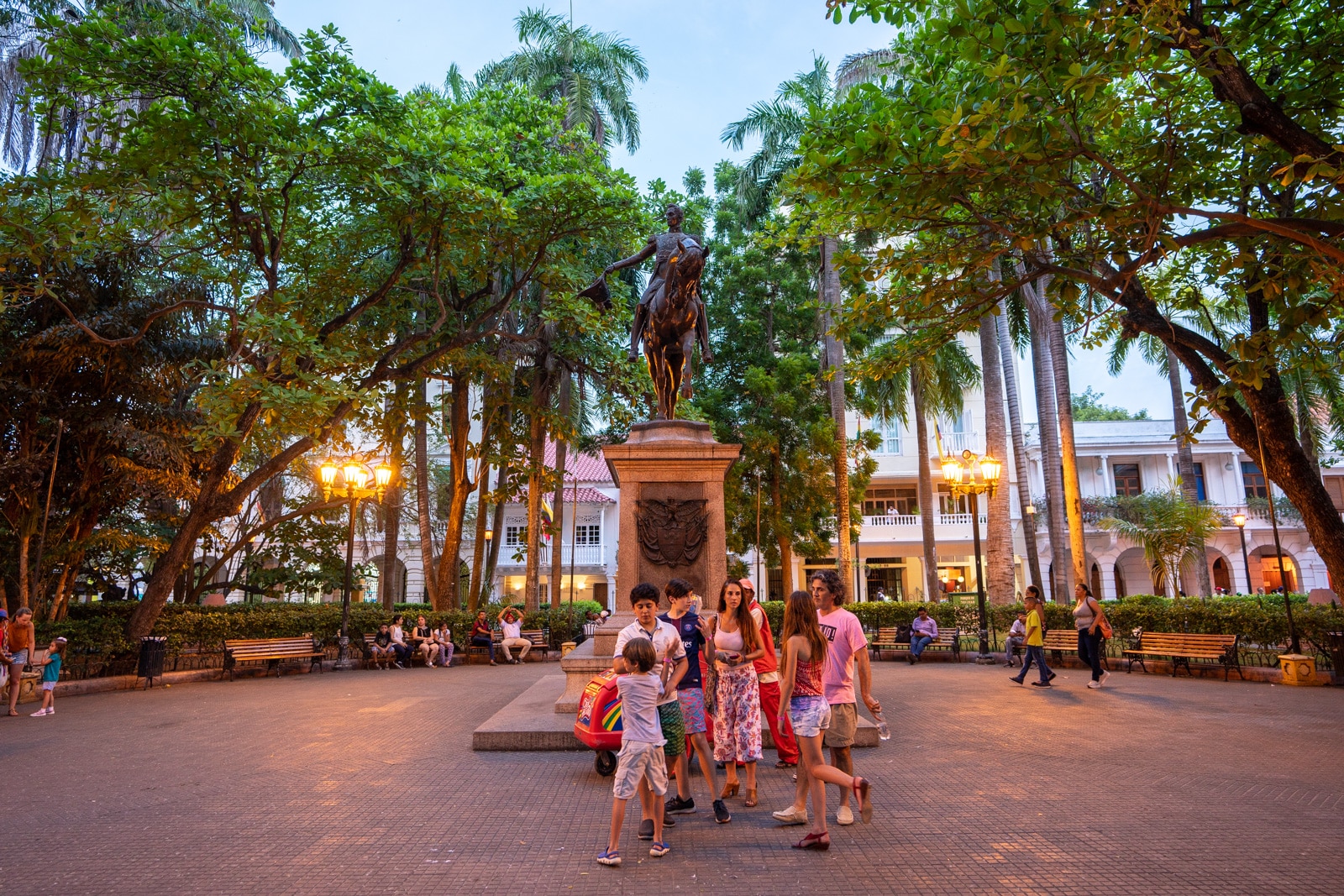
A square in Cartagena, Colombia
As my hangover dissipated and my head cleared the next morning, I probed the muddled emotions in my mind:
Shock. Everything and everyone on the streets around me felt so foreign, so surreal, so… sexual. Like I dropped straight into a film… or a porn.
Shame. Guilt niggled in my mind when I thought about how “immodest” I was the previous evening. The confusion intensified when I realized I shouldn’t feel that way in the first place.
Confusion. Despite the culture being relatively similar to my own, I felt like a lost outsider looking in…. so where was my place, then?
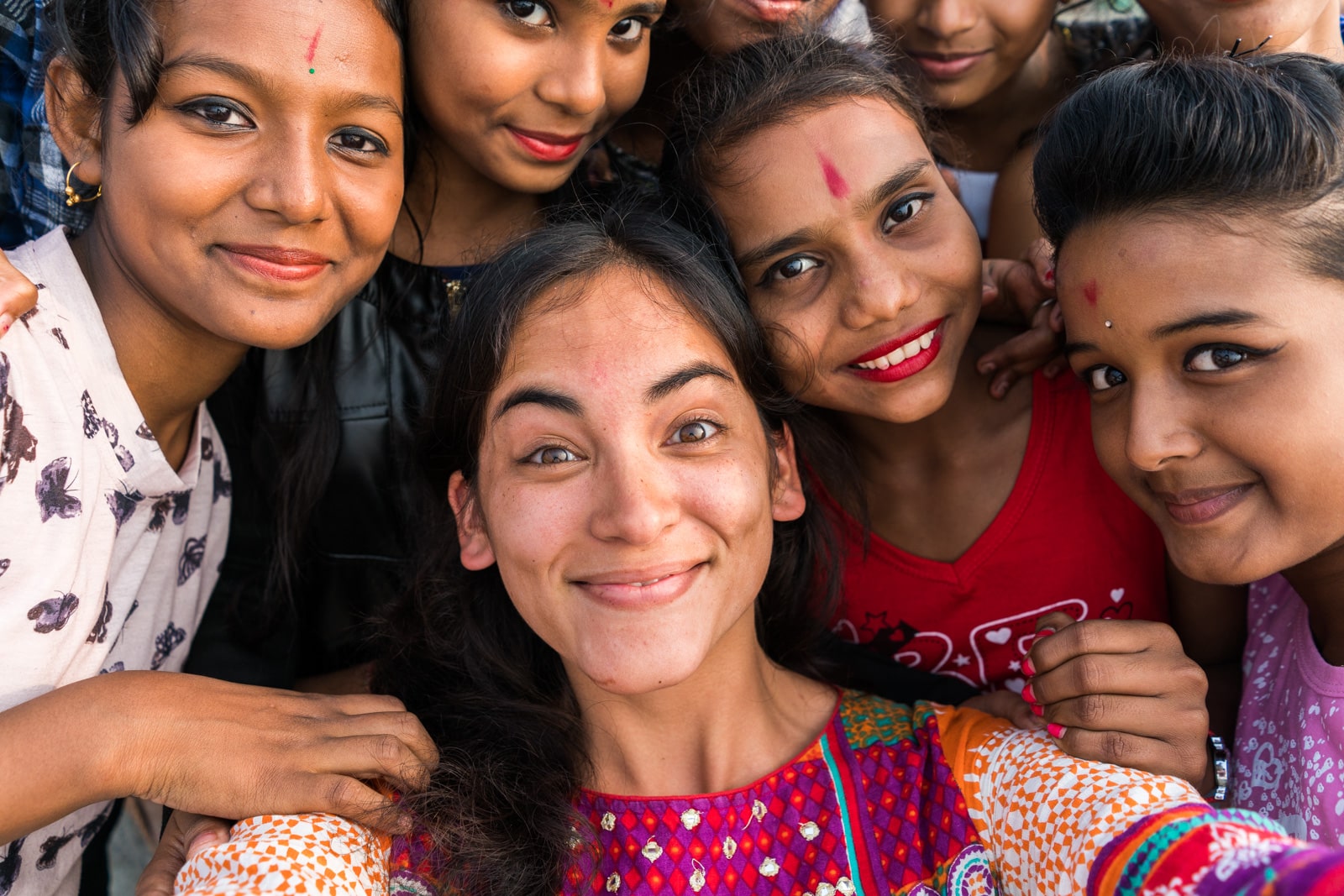
Selfie time with some girls on the Brahmaputra River in Assam, India
Too fitting to be foreign, too foreign to be fitting
“Place” can be mental as well as physical. A space, a culture, an ideology you feel comfortable with, that feels normal to you.
The thing is, over the last 2+ years my perception of what is “normal” has clearly distorted.
During those two plus years, I spent a total of almost 1.5 years traveling through conservative South Asia—particularly India, Pakistan, and Bangladesh—and began to feel very at home in the region despite its frustrations. What caused my cultural shift?
After pondering for a long while, I realized it’s because everywhere I go in Asia, my dark hair and melanin get me mistaken for a local. And I think salwar kameez is the greatest clothing ever.
Passersby ask me questions in their language; faces screw up in confusion when I can’t respond. I slip into sights for local prices. Strangers ask me to translate their comments when I walk around with white travelers (when they don’t ignore me altogether). Locals are more comfortable speaking with me because my appearance is familiar, more approachable. Half of my followers seem to think I’m a desi girl from India or Pakistan.
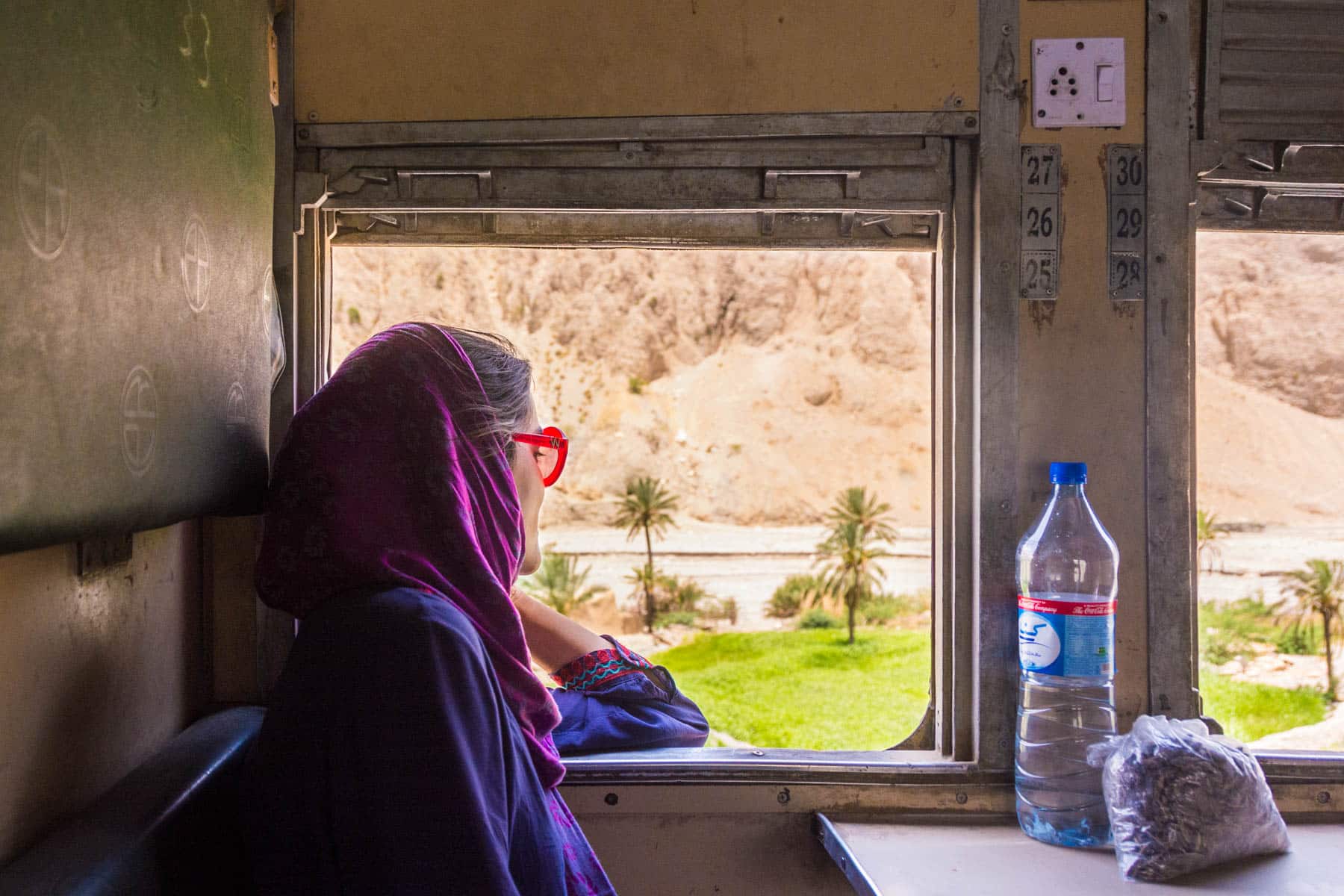
On the train from Quetta to Karachi, the final leg of the longest border crossing I’ve done to date
(Assimilation has its setbacks. I’m often judged according to local standards; my actions earn plenty of scowls and disapproval from haughty aunties and uncles. I am not automatically granted the leeway or privileges white foreigners receive. Lecherous men also find me more approachable and appealing because I am their holy grail: the “loose” morals of an American combined with the looks of a desi girl. Sigh.)
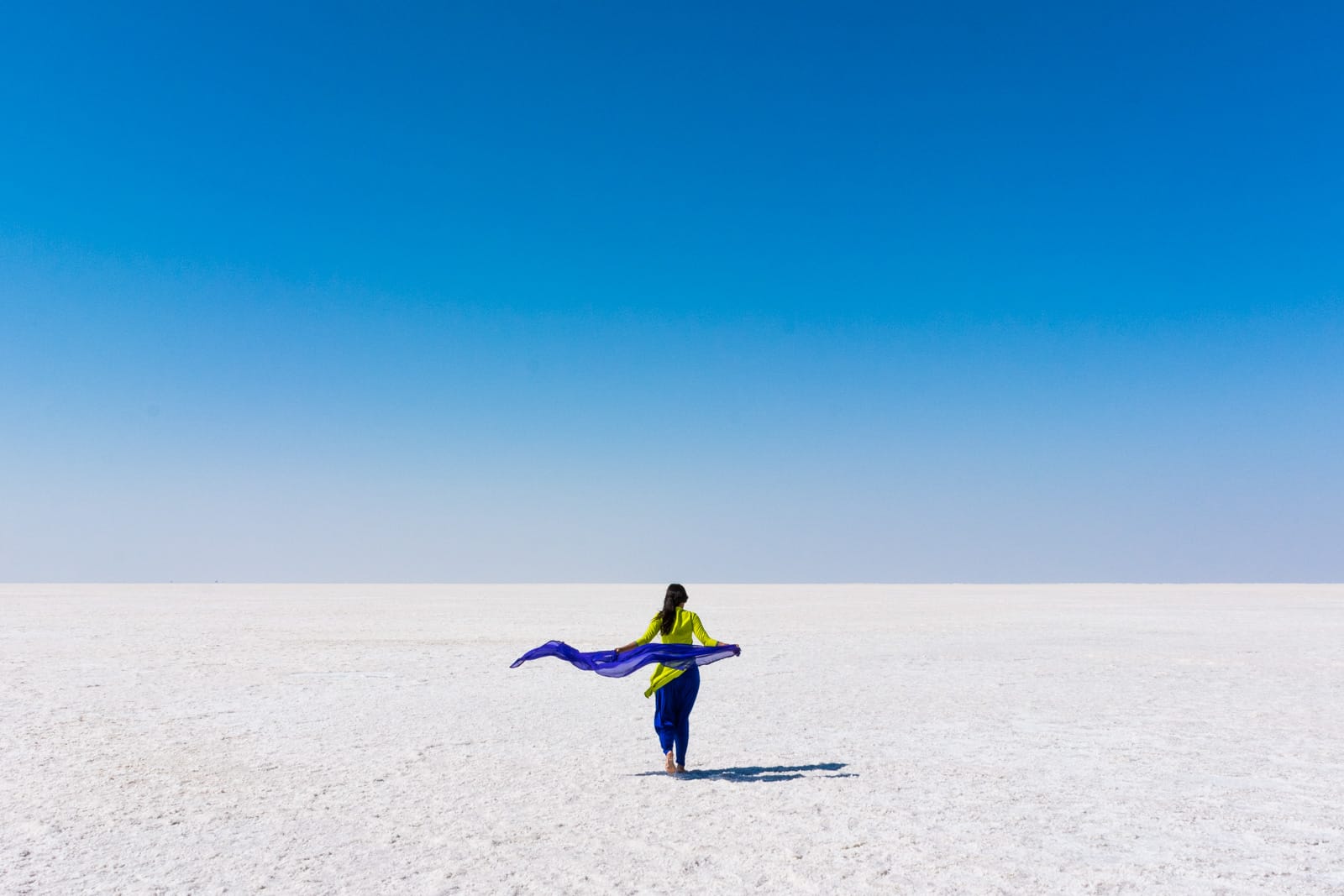
Dupattas 4 dayz in the Great Rann of Kutch desert in Gujarat, India
In a way, I feel like I belong. More than I ever did in the overwhelmingly white suburban communities of my childhood, anyway.
Yet at the same time, I’m never going to be desi, never going to be a true part of any South Asian culture.
No matter what I wear, how I speak, the way I act, I will always be an outsider, an angrezi, a firangi. Once it’s known, people do not easily forget that I was born in the United States. I am introduced as American girl by friends and acquaintances on the good days, reminded that I am naught but a clueless outsider by people uncomfortable with my opinions on the bad days.
One of my feet is inside the desi door (shoe off, of course). The other has to wait on the outside—on the other side of the world—forever.
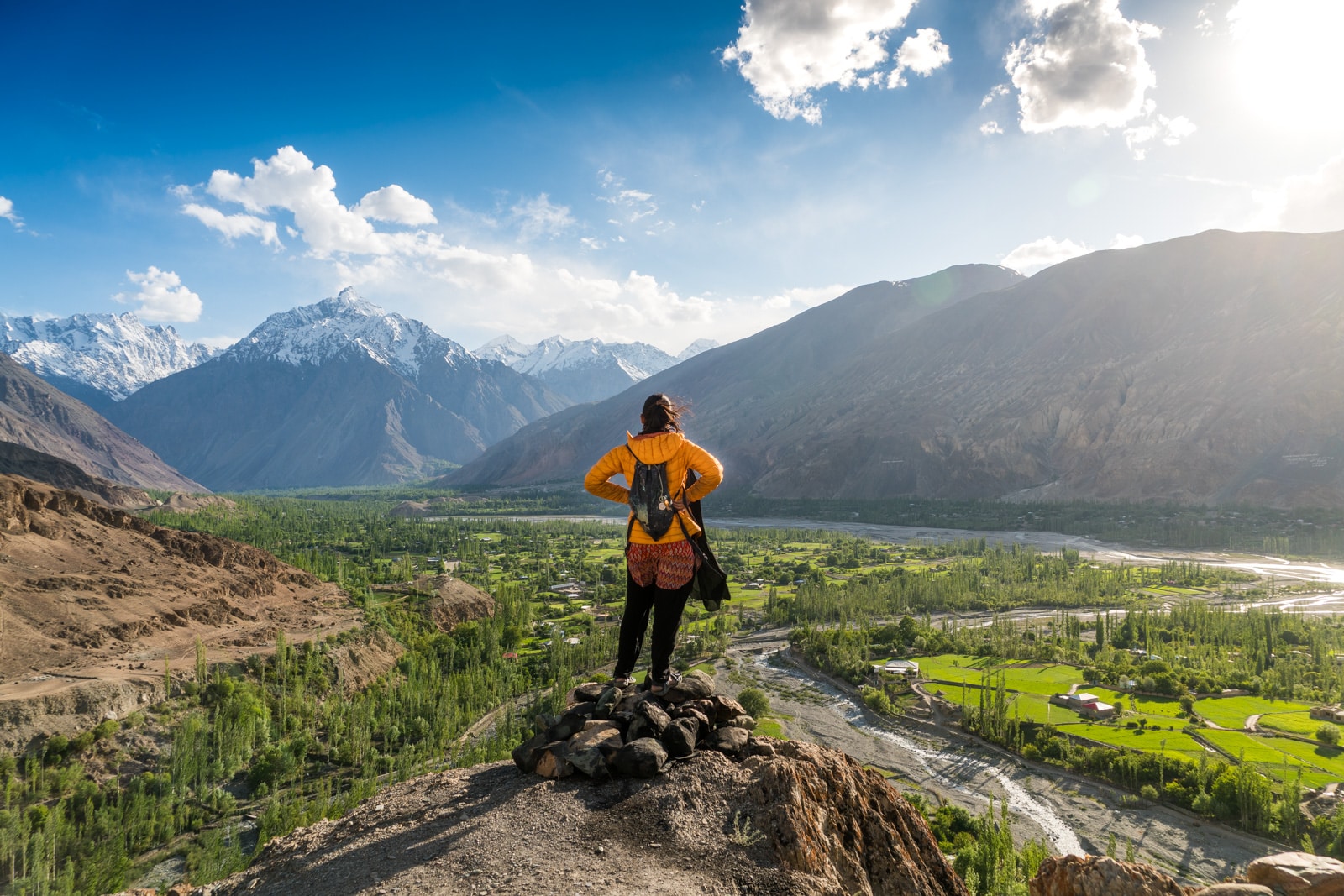
Soaking up the views over Yasin Valley in Pakistan
Caught between cultures
It’s not that I aspire to walk through this metaphorical door, to be accepted as local. But it feels like my body and mind have already passed through the doorframe, and I’m not sure if that’s where they should be.
Where does one draw the line between appreciating and adapting to a culture and standing back from it? What do you do when you’ve been away from home long enough that another culture is more comfortable than your own?
I don’t yet have an answer to the conundrum; I’m still coming to terms with the extent of it myself.

Overwhelmed by curious options in gigantic American supermarkets…
Now that I’m visiting my family at “home” the United States—simultaneously an epitome of West and a melting pot of people caught between cultures—those questions become even more muddled.
The United States has not been my home for more than five years. It feels more foreign than some of the places I’ve been… yet it still defines me as a person. Whether I like it or not.
Coming “home” requires me to confront this identity, to step through mental stages of reverse culture shock. Shock is necessary to come to terms with both what I’ve seen and who I’ve become through my travels… but it’s damned confusing sometimes.
Though I’m still sorting out my own mental mess, I want to share my experience with reverse culture shock with you now. Reverse culture shock is a very real side effect of travel that isn’t discussed enough… and not everyone realizes it exists.
Reverse culture shock is real
Reverse culture shock is often lost on others who have never been away long enough for home to feel foreign.
In my experience, people think I should be grateful to come back to a developed Western world, not confused by it. Plenty of you out there know the feeling; a handful already stepped forward to message me about your own confusing experiences coming home.
Returning “home” and realizing it’s uncomfortable foreign is perplexing enough as is. Not being able to express that sentiment without coming off as some preachy person who went and ~*found themselves*~ and/or became a Certifiable Saint after a week of volunteering in a developing country is even worse.

*Omg totally saved ~all~ the poor little Indian kids from hunger and poverty, you don’t even.* JK, these girls in Bhagalpur, Bihar walked around with me for an hour before they were roped into taking selfies by this random man…
It’s tough. If people around you don’t understand—or realize the shock is real at all—you have to internalize your feelings, which is never a good thing.
For those struggling with reverse culture shock after long-term travel, there are a few things I’ve personally found helpful for managing it:
1. Don’t bother trying to share with people who don’t care.
It’ll just make you feel bad, and marginalize your internal struggle even more. Save your travel stories (and outsider observations about home) for people who will actually listen, care, and discuss with you.
2. Travel in your own home.
You’ve survived your explorations of foreign places or countries—what’s to stop you from doing the same on your own turf? Seek out some of the same experiences you do on the road. In my case, that means people watching, seeking delicious sugar-filled delights, and keeping an eye out for unusual or interesting experiences.
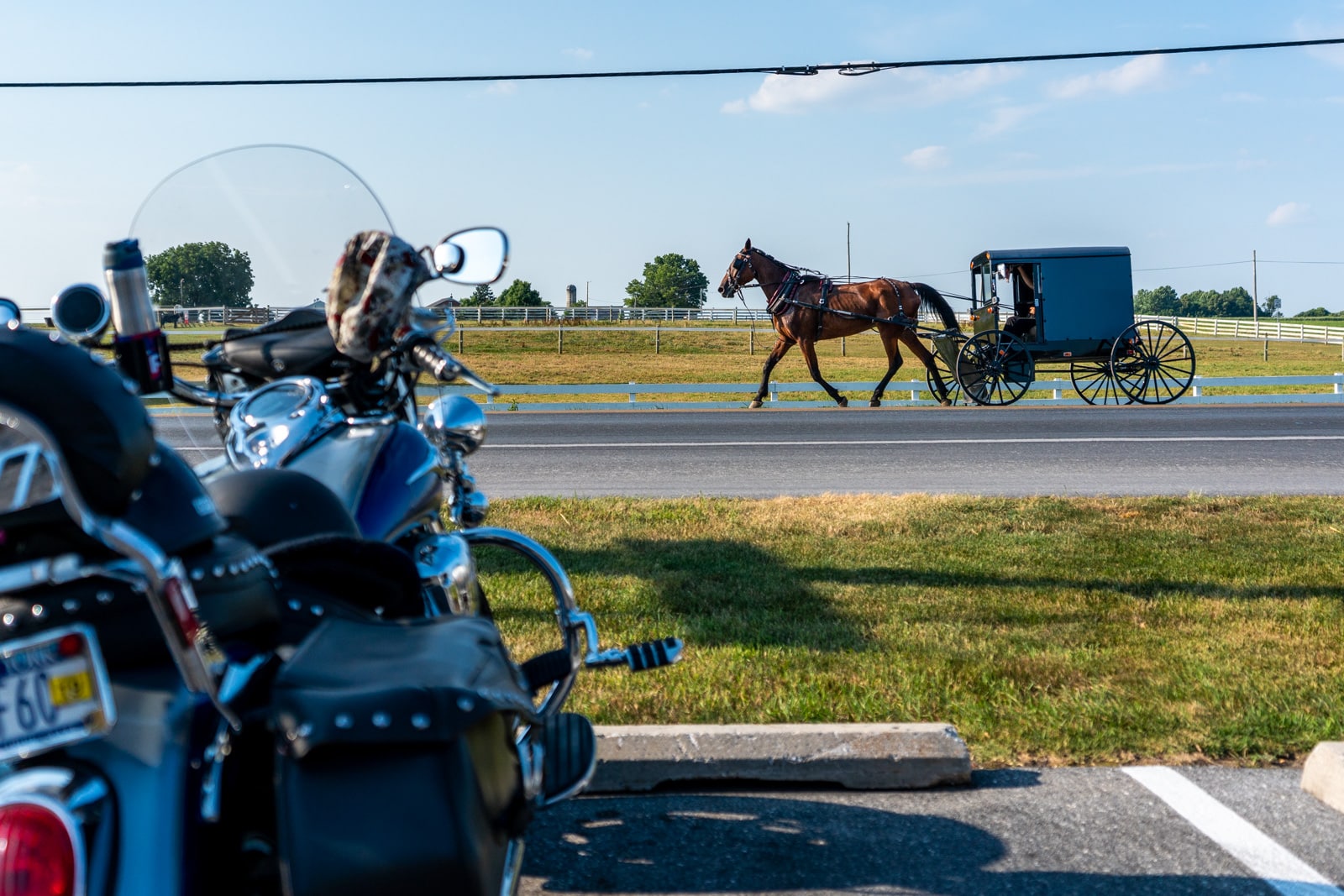
Exploring my own home: I recently went out to Amish country in the middle of Pennsylvania, where religious minorities choose to live traditionally without modern conveniences such as cars and electricity.
3. Fixate on the good things about coming home/back to your culture.
After initial weeks of dwelling and confusion, I’m trying to actively focus on the things I enjoy that I don’t have on the road: family time, healthy food (… in between unhealthy ice creams), actually good drinks, jogging without loitering men eye-raping my body.
Adaptation is a gradual process, and these things have been easing mine.
All in good time
Of course, they’re not a quick fix; shock takes time to fade. Around two months (!!!) have passed since I flew to Brazil and returned to the Western world, and I’m still finding my balance.
Tiny clothes are no longer shocking—booty shorts and joggers in sports bras being the exceptions—I’ve learned to ignore consumerist discussions, and I’ve mostly managed to tame my griping about how good life is for people in the US compared to people abroad.
Mega American supermarkets still unnerve me. Strolling down the prim river trail through Philadelphia filled with joggers in athletic clothes and hipster yuppie families was like exploring another planet. I instantly felt ashamed when a Bengali auntie in a sari gave me and my bare legs a withering look in a desi market last week.
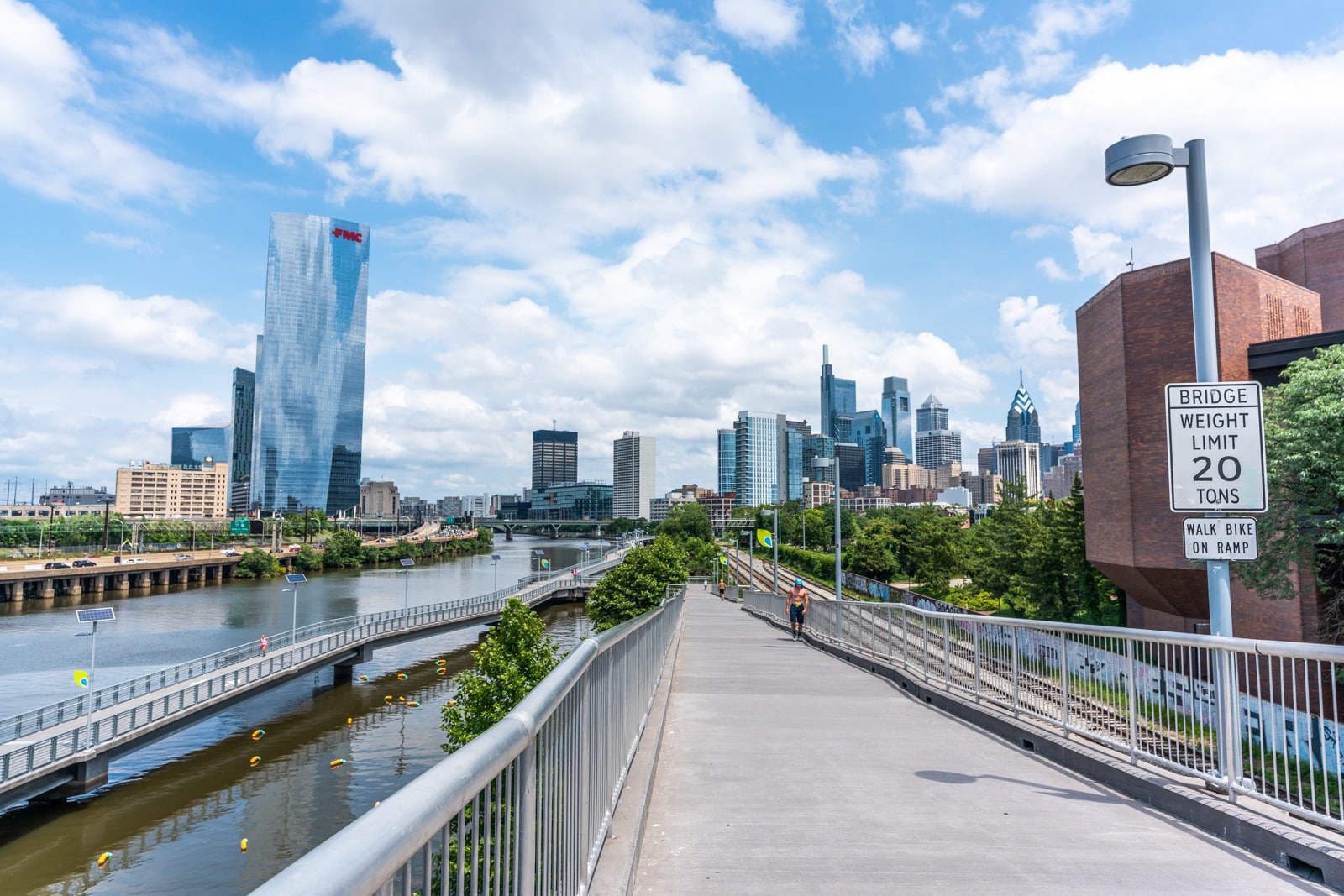
The river walk in Philadelphia, Pennsylvania. Might as well be Mars.
As with everything in life, I know with time my mind will find its equilibrium. If I can adapt to one culture, I can transition “back” to another… and then adapt once more when I get back on the road.
Until then, I’ll continue on living as the outsider. I’m used to it—such is the life of a traveler.
Want more real talk from the road? Here’s what it was like to break up while traveling.
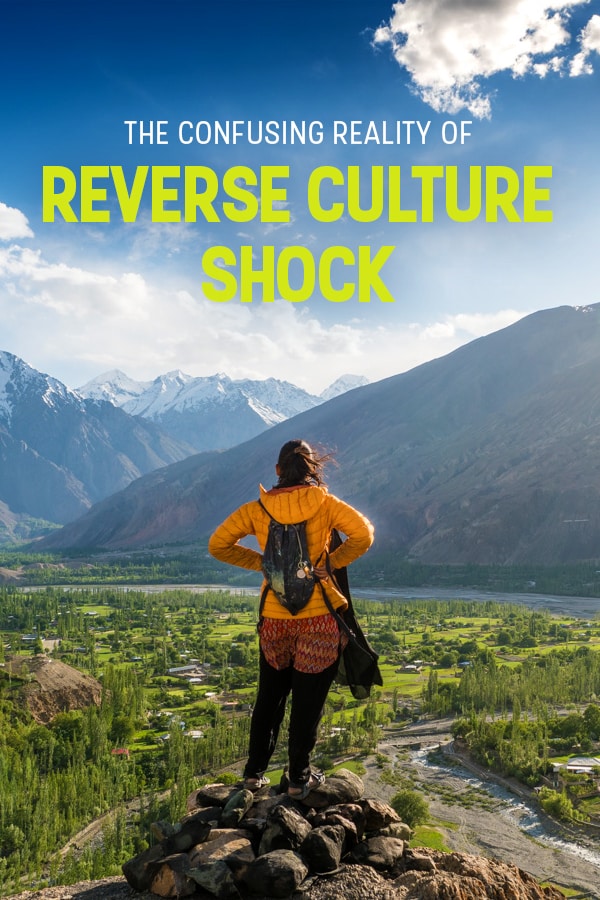
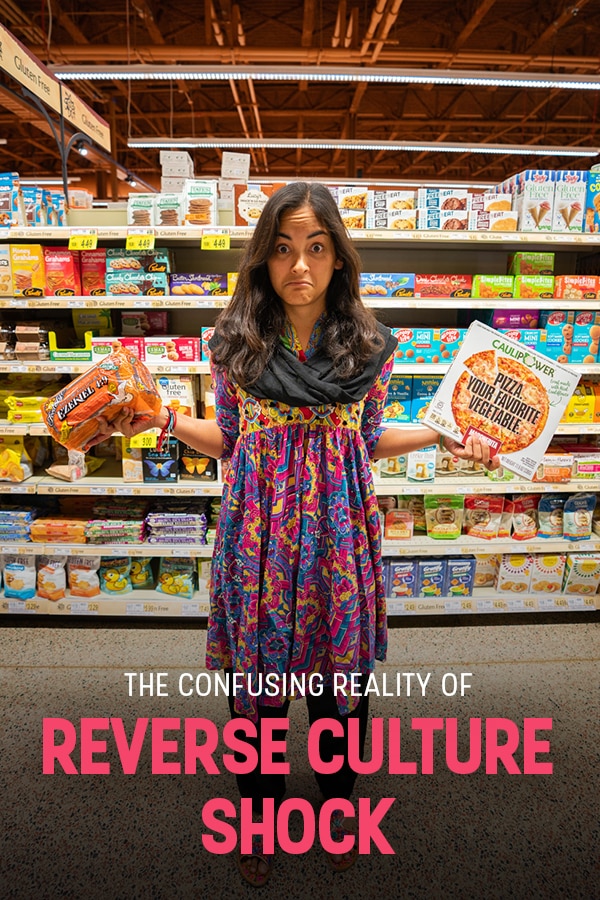



Great article Alex! As always, I appreciate your honesty and vulnerability in disclosing your thoughts. It’s funny, it didn’t seem to be a surprise for me, you’d be feeling this way, I have been sensing this in you from your blogs, instagram feeds and in particular after you’ve been travelling solo. I felt you had become more and more brazen in your surroundings and what was “normal” but I wonder if your current state of mind is in part to where you were travelling?
I mean, that if you had been 2+ years in Europe, South America you may not be feeling the same intensity of reverse culture shock. And in part, it’s not that over the last couple of years that you were exclusively “adapting” to a culture as much as it was also a survival mechanism, given the risks of being a woman in the regions you were travelling. Let’s be honest, the alternative of non-conformance where you have been is literally life threatening.
Anyways, you continue to bring a new perspective on travel and thought provoking blogs that reinforce that as much as the world sometimes seems smaller, sometimes it’s just not!
Btw have you checked out: Taiya Selasi, Don’t ask where I’m from, ask where I am local: https://www.ted.com/speakers/taiye_selasi I think it will resonate, certainly did for me 🙂 https://bit.ly/2LUSaHR
Always the best,
That’s entirely possible; traveling in some of these countries is absolutely more rigorous than your standard Eurotrip. I wouldn’t go so far as to call a lack of adaptation “life-threatening” (well… perhaps in Afghanistan.) but it’s true that not adapting would make my life significantly more uncomfortable. And that’s something I certainly don’t need—I’m uncomfortable enough often as is!
Also thanks for sharing these links, on my way to check them out now!
Hi,
after returning home (from the longest trip of my life), I waited a long time for “coming to myself.” exactly until the realization came that there is nowhere to return, or rather to get back to oneself who left home…. think it’s just necessary to live and move on. Good luck and wish you all the best!
Very good point! Better to adapt to your new self than try to return to the state you were before traveling. Otherwise… what’s the point?
Amazing article. I felt just a fraction of this after only 5 weeks away from the US! It’s fascinating how beyond the most noticeable differences, there is such an innate atmosphere to different regions that you don’t see so much as feel. Can be a scary sensation, but overcoming it again and again has got to be the key to feeling at home in the world.
This is one of the most amazing articles I’ve read in such a while. Especially the metaphor:
“One of my feet is inside the desi door (shoe off, of course). The other has to wait on the outside—on the other side of the world—forever.” Stuck in a doorway, such a good metaphor.
I’ve never thought about this concept. In a sort of opposite way, I feel like the US is a foreign place to me even though I’ve lived here my entire life.
“I’ll continue on living as the outsider. I’m used to it—such is the life of a traveler.” that’s true. Although I haven’t traveled like you but within the same country I have felt the same and it is so relatable.
You look like a Desi Paki girl except that you are not. I am a Desi Paki pathan girl but due to my accent and dressing usually Punjabis confuse me as a foreigner and treat me like one. When I go back home in my conservative family I feel certain things as very normal which are not normal for my family. It upsets me alot. It feels like I am foreigner in my own home.
Your article is giving me an insight to how I am going to feel if I studied and lived abroad.
Thanks for this article! I loved reading your reflections and can relate to them, having been an expat for most of the last three years. Each time I go back to the US brings new discoveries of myself and my “home” — reverse culture shock can be a great teacher.
I am so feeling this, as a norwegian-pakistani girl – especially when I think about coming back “home” aka. Norway after spending like 2 months in Pakistan – except there will be a few aunties and creepy uncles in Oslo looking at me and thinking I’m not behaving as I should with my pink hair carrying a guitar on my back. But that’s a digretion – I actually just wanted to say that I really liked your piece!
You will find your new normal and become more aware of yourself in the transition. Travel is the greatest teacher… education the greatest equalizer. You are a “bon vivant”, Carpe Diem.
I am glad I found this article. I have been living in Germany for 2 years and am about to move home… I am terrified that I will get there and then panic and regret moving home. I guess it just comes down to deciding what is most important to you, travel or family. For me it will be family for now, but deep down I know that I will end up back in Europe eventually. Fingers crossed for a smooth transition back to the Southern US. I will miss Munich dearly until I can make it back.
Hi Alex,
Does this mean you won’t be going back to live in India? Will you be US based? I loved your article. I feel the same way when I go back to the UK, there is something so exciting about being home…for 2 weeks. And then, I need to leave again.